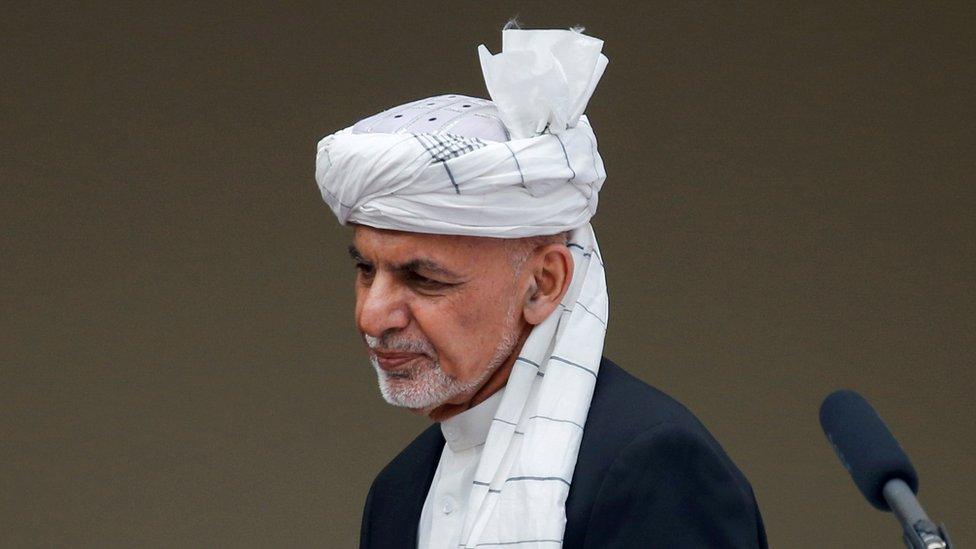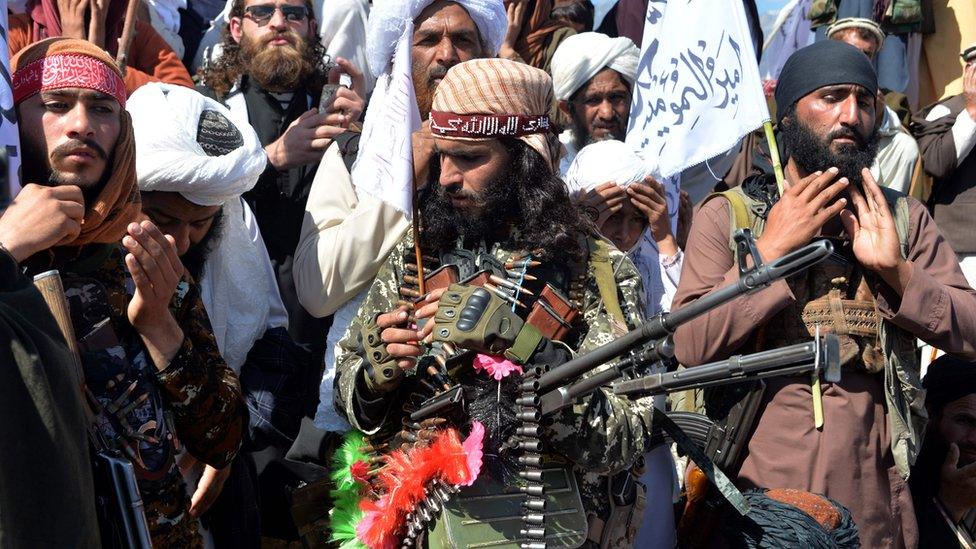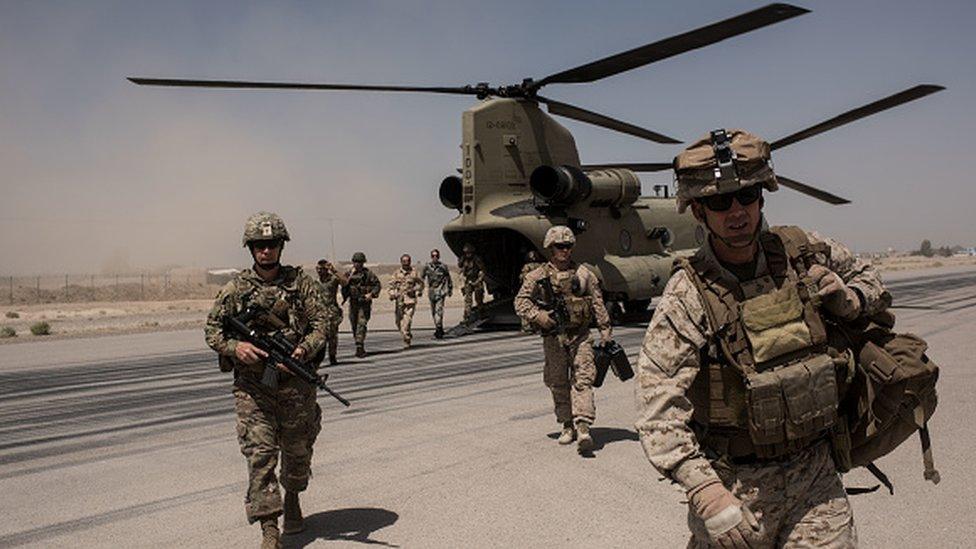Taliban prisoner swap begins as part of Afghan peace talks
- Published

President Ashraf Ghani's decree asks prisoners to sign a guarantee they will "not return to the battlefield"
Afghan President Ashraf Ghani has approved the release of 1,500 Taliban prisoners as part of efforts to secure a peace deal with the insurgent group.
The presidential decree requires all prisoners to give "a written guarantee to not return to the battlefield".
In exchange, the Taliban has agreed to hand over 1,000 government troops.
It comes as the US begins withdrawing troops from the country as part of a linked agreement signed earlier with the Taliban.
According to the decree signed by President Ghani, all 1,500 prisoners will be released within 15 days, "with 100 prisoners walking out of Afghan jails every day".
Talks between the Afghan government and Taliban will take place in parallel with the release. If talks progress, the government has pledged to free 500 more Taliban prisoners every two weeks until a total of 5,000 have been released.
As part of the agreement, the Taliban must continue its reduction in violence, and bar al-Qaeda or any other extremist groups from operating in areas under their control.
The prisoner release is intended to build trust between both sides and kick off direct talks to end the 18-year war in Afghanistan. The talks were due to start on Tuesday, but negotiations were delayed by demands over the prisoner release.

A Taliban leader told AFP news agency the group would only accept prisoners from a list of captives it wants freed
Speaking with AFP news agency, an unnamed member of the Taliban's leadership council said the group had presented a list of captives they wanted freed. But he accused the government of acting in bad faith, saying it only planned to release "those prisoners who are elderly, very ill, or those whose sentences have expired".
The Taliban's political spokesman, Suhail Shaheen, tweeted on Tuesday that the group would only accept prisoners named on their list.
Under the presidential decree, the government will release Taliban prisoners "based on their age, health status and the remaining jail term".
President Ghani had earlier refused to free 5,000 prisoners as part of the US agreement with the Taliban, but Wednesday's decree signalled a softening of his stance.
Under the historic deal, endorsed by the UN Security Council, America also agreed to reduce its troops from about 12,000 to 8,600 within 135 days. The US and its Nato allies have agreed to withdraw all troops within 14 months if the militants uphold the deal.
Is peace with the Taliban possible?
America's drawdown began on Monday, but deal appeared fragile last week after the US launched an air strike in response to Taliban fighters attacking Afghan forces in Helmand province.
Fresh political instability has also threatened the prospect of talks between all sides in the country.
Two separate swearing-in ceremonies took place on Monday for two different politicians after disputed presidential elections last year.
Afghanistan's electoral commission says incumbent Mr Ghani narrowly won September's vote, but Abdullah Abdullah alleges the result is fraudulent.
Experts warned the current political rivalry would "gravely affect the government's position" during peace talks.
The Trump administration has also said it opposed "action to establish a parallel government," in an apparent show of support for Mr Ghani's presidency.
- Published9 March 2020
